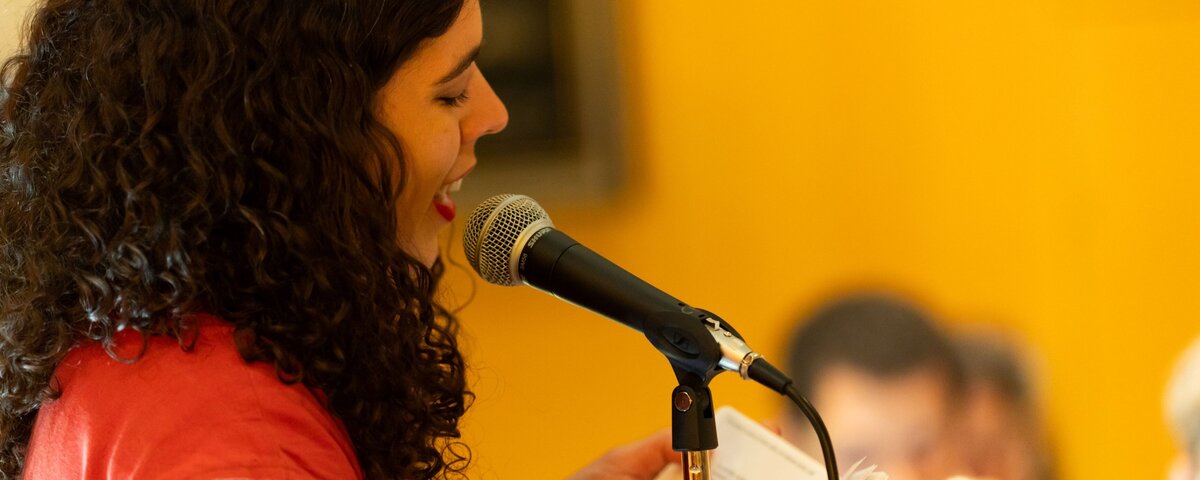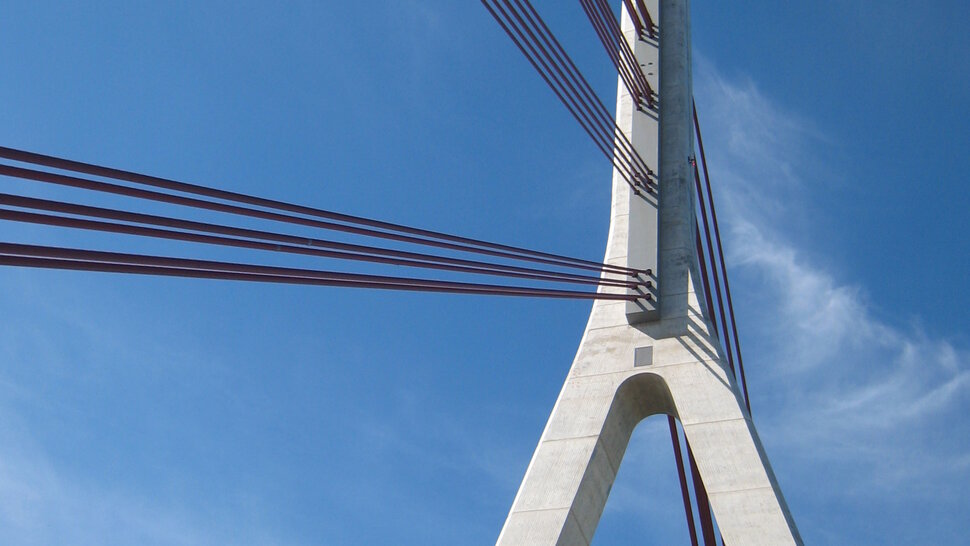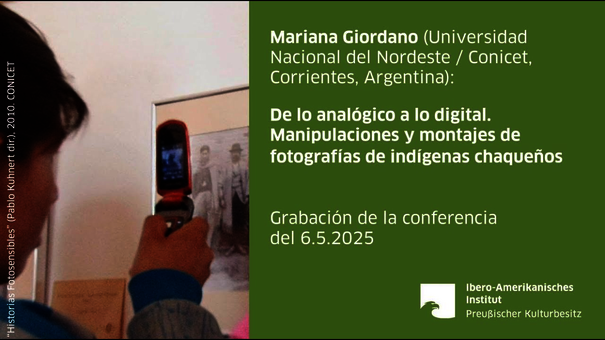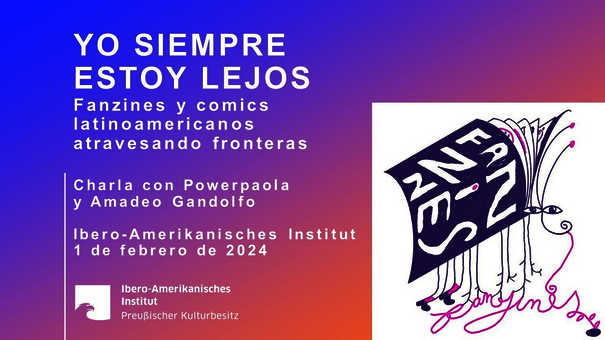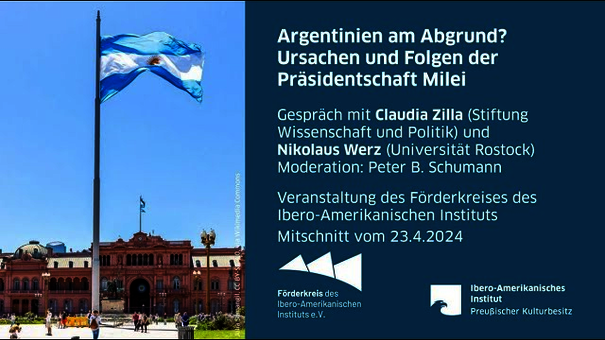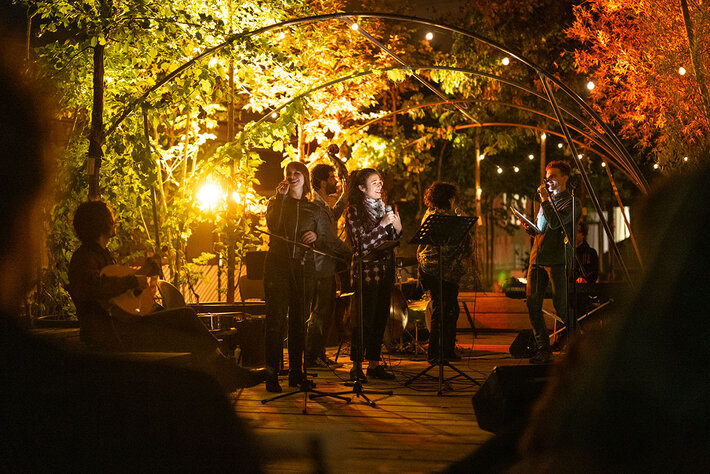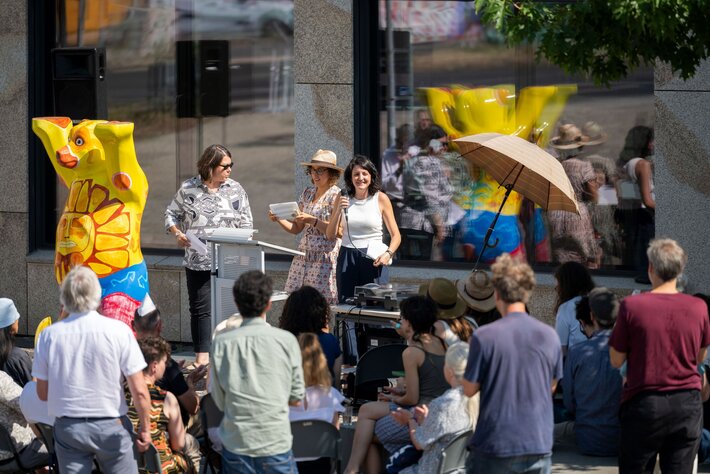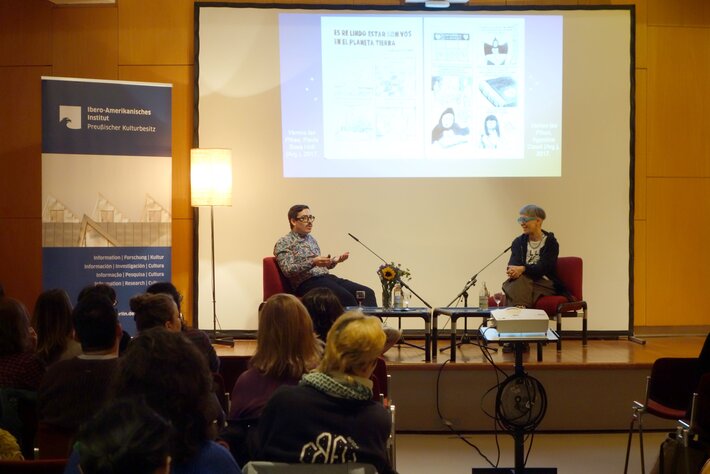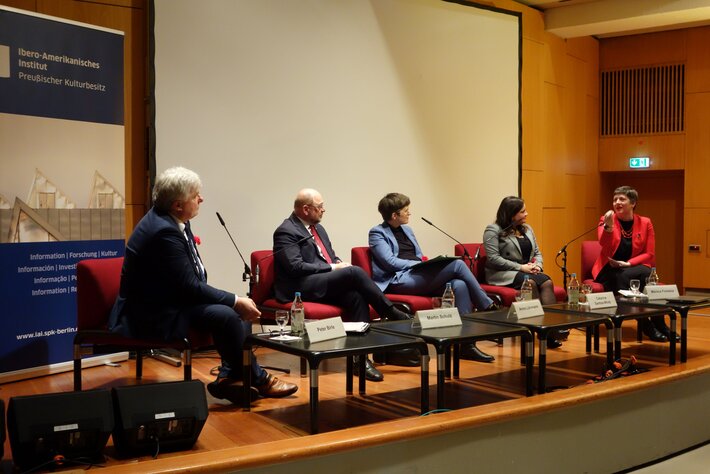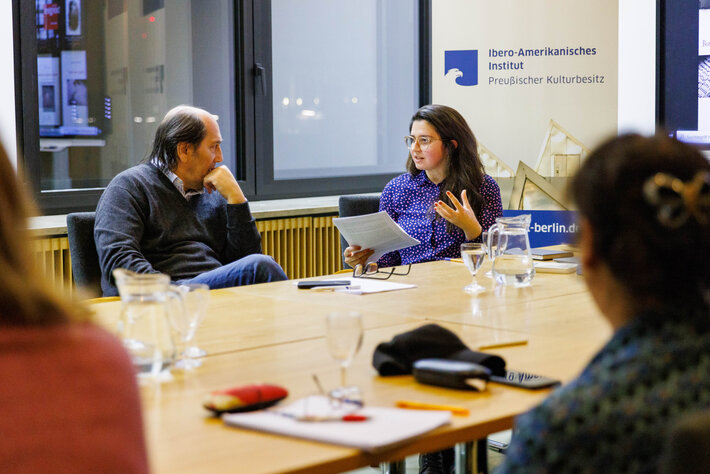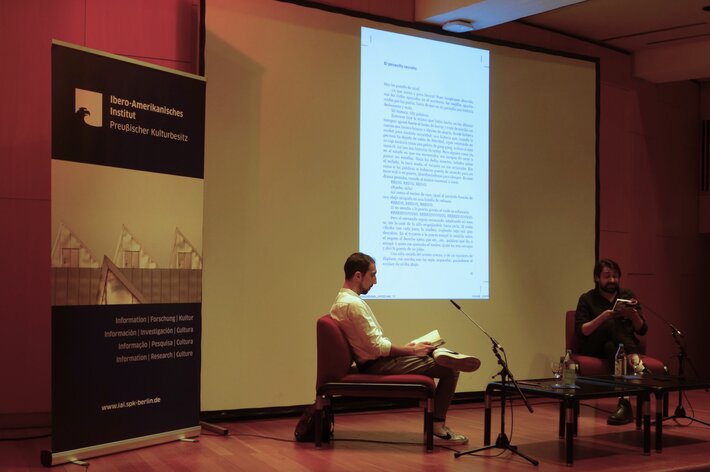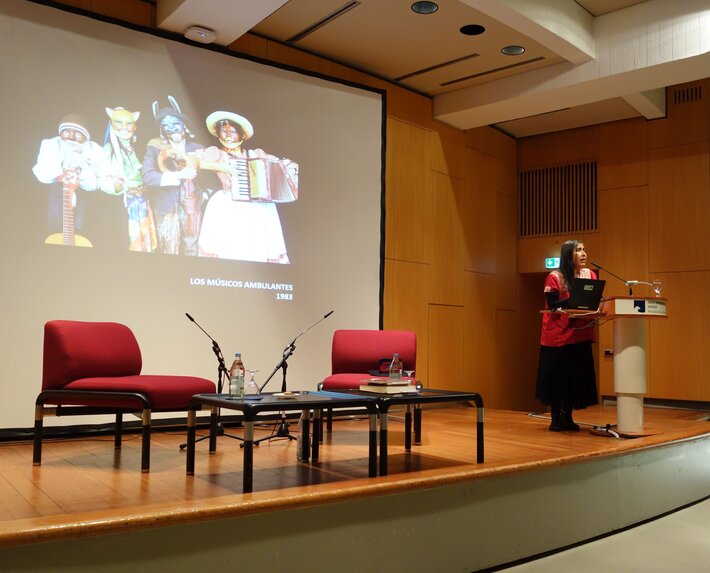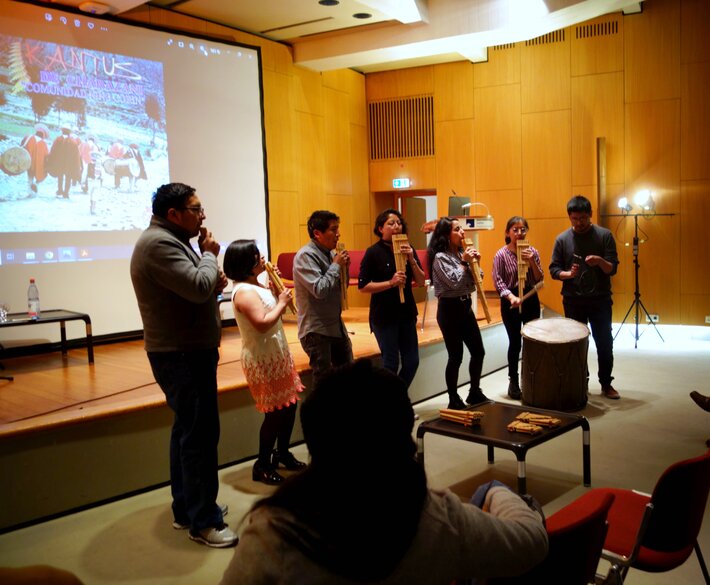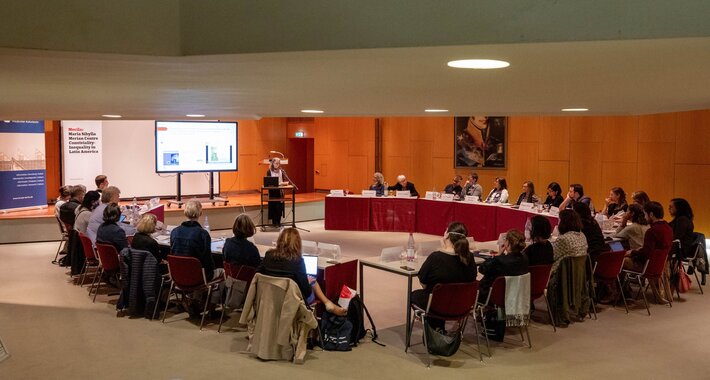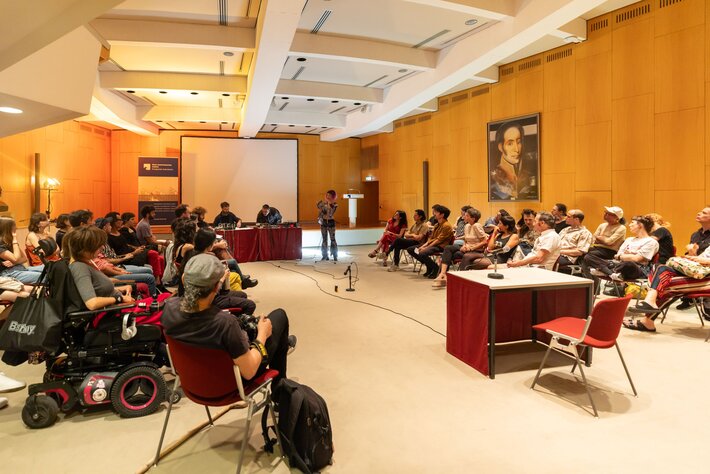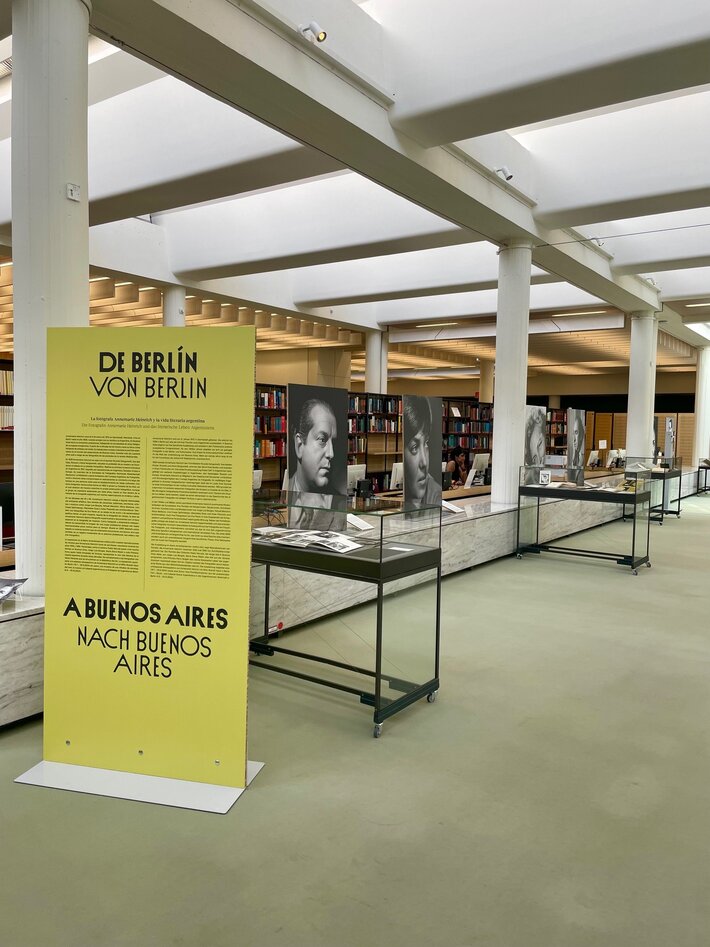Eventos
O Ibero-Amerikanisches Institut organiza uma grande variedade de eventos culturais e acadêmicos tanto nas instalações do Instituto quanto virtualmente. Os eventos são frequentemente organizados por parceiros do IAI em Berlim, na Alemanha e em todo o mundo. O programa multilíngue abrange desde leituras, palestras, discussões, simpósios e conferências até exibições de filmes, concertos e exposições. Os eventos são um componente central do programa de mediação cultural do IAI desde a sua fundação, estão intimamente ligados às áreas de trabalho do Instituto e oferecem a um público mais amplo uma visão de suas coleções, projetos e atividades de pesquisa.
